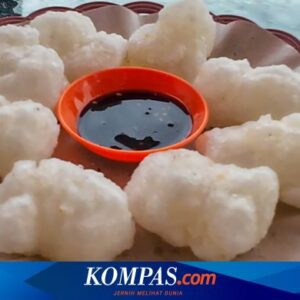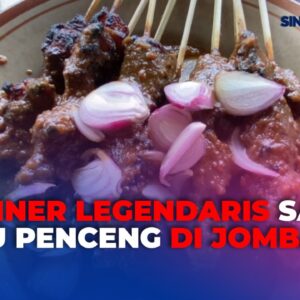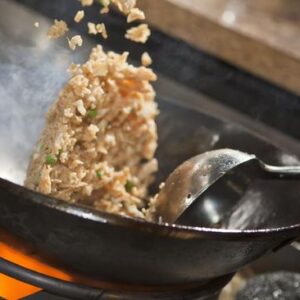Beijing (ANTARA) – Shanxi Province is one of the birthplaces of the Chinese nation because primitive villages were discovered during the Paleolithic period in the area.
The location is in northern China, bordering Hebei province to the east, Henan province to the south, Shaanxi province to the west, and Inner Mongolia to the north.
During the imperial period, Shanxi became a commercially, economically and culturally developing region in Northern China. One of the oldest cities in Shanxi, namely Pingyao, is China’s financial center and was even the city that gave birth to the first banking system in China and was inhabited by the majority of rich people during the Ming and Qing Dynasties.
Shanxi is also known for its unique specialties, namely various noodle and vinegar dishes.
Also read: Tasting the Chinese restaurant that Soekarno visited in 1965
ANTARA had the opportunity to try a number of Shanxi specialties at the Xinghua Hall restaurant in the city of Beijing, China. The Xinghua Hall restaurant itself focuses on the concept of dishes from the Jin merchant family, one of the leading merchant families from Shanxi. The following are a number of menus served
1. Fenyang cold mung bean noodles (汾阳绿豆旋粉)
These noodles are light yellow and clear, the texture is soft and slippery, and the taste is refreshing. The noodles come from selected green beans which are soaked in water at 100 degrees then cooled and ground on a grinding wheel while continuously pouring water. The slurry is then filtered and fermented for 10 days. Once it becomes porridge, it is then mixed with flour and begins to be spun into noodles. The taste is generally soft and has a slight sour taste.
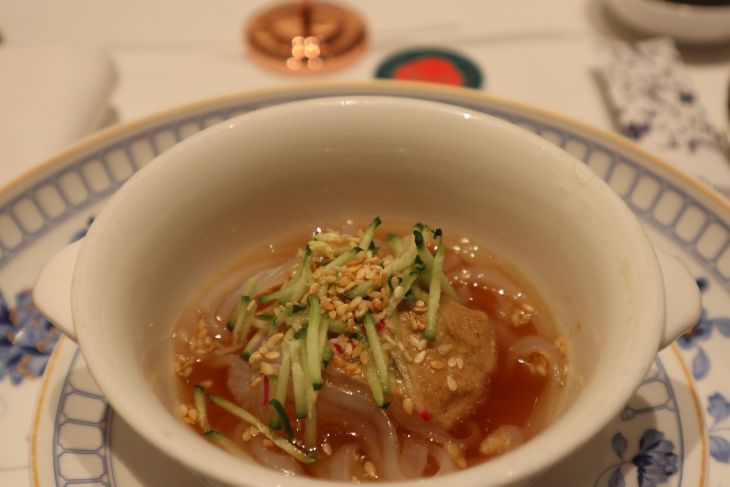
2. Pingyao famous beef (老字号平遥牛肉)
Beef from Pingyao has been famous since the beginning of the Western Han Dynasty. At that time, the story spread that “Pingyao people started selling swords to buy cows and selling horses to buy calves. Currently, there are 56 companies related to the beef industry in Pingyao with more than 3,000 employees. Pingyao beef is tender and reddish in color. The meat is served straight from the can.
Also read: Southwest Chinese culinary specialties are now entering the Thai market
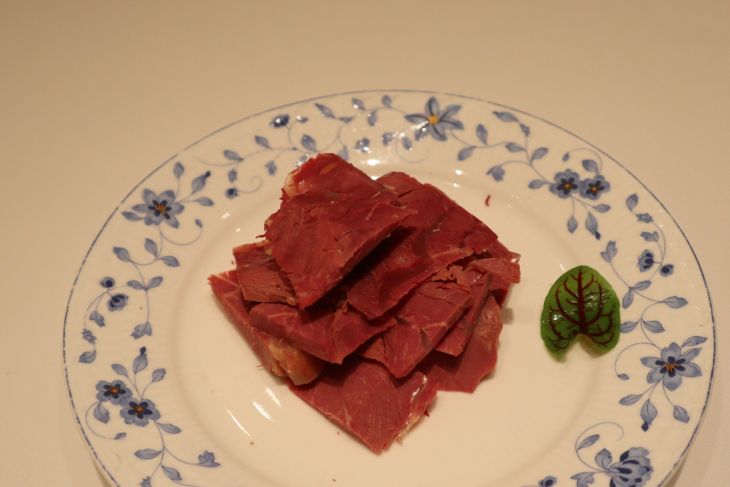
3. Qiao family vinegar fish (乔府醋鱼)
This dish is a recipe from Jin Qiao’s family who hosted guests and friends during the New Year festival to show fish jumping over the dragon gate.
The fish used is freshwater fish, namely osmanthus fish. The fish is fried at high temperature and then positioned standing up with the head at the top and the tail at the bottom.
The fried fish is then doused with aged vinegar from Shanxi that has previously been boiled together with carrot juice and fried garlic and poured from head to tail. When the vinegar flows smoothly, it implies good luck in life and career. The guests are like fish in water.
Also read: Chinese people’s snacks are IDR 7,800 trillion a year
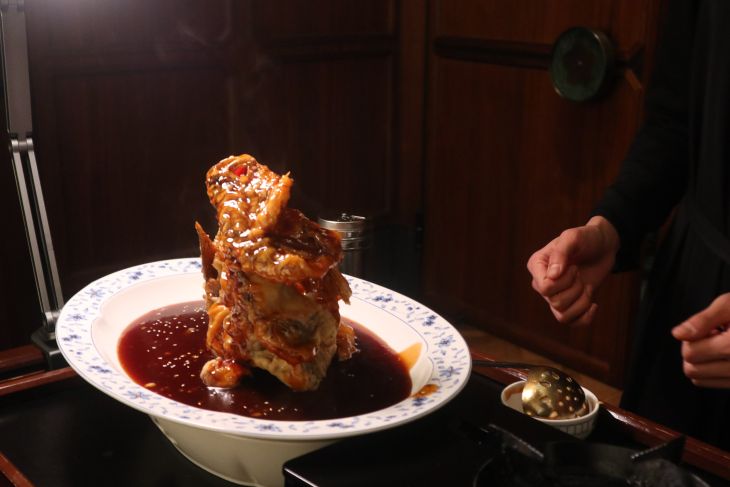
4. Chang family’s winter silver melon roast duck and hollow sesame bun (常家银冬瓜烤鸭&空心烧饼)
One of the four signature dishes of the Xinghua Hall restaurant is roast duck served in a giant silver egg.
However, the restaurant calls it a silver winter melon from the Chang family because the container actually depicts silver as an ancient currency.
Originally because bandits were rampant in the past and robberies were frequent so it was unsafe to carry silver coins around, merchants found silver winter melons to hide their silver coins.
Also read: Indonesian tourists praise the spicy and vibrant culinary delights of Chongqing in China
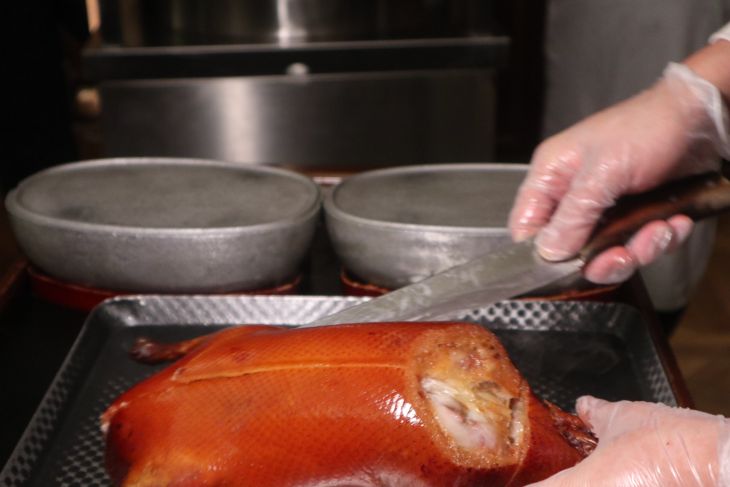
Roast duck from Shanxi is different from Beijing roast duck. Shanxi roast duck only uses duck with white feathers and then carries out a pickling, drying and roasting process that lasts for 17 hours to produce meat that is crispy and fragrant, tender and juicy while the skin is very crunchy.
The duck is placed in a silver winter melon container and eaten with hollow sesame bread. The cavity inside the dry bread is filled with roast duck meat.
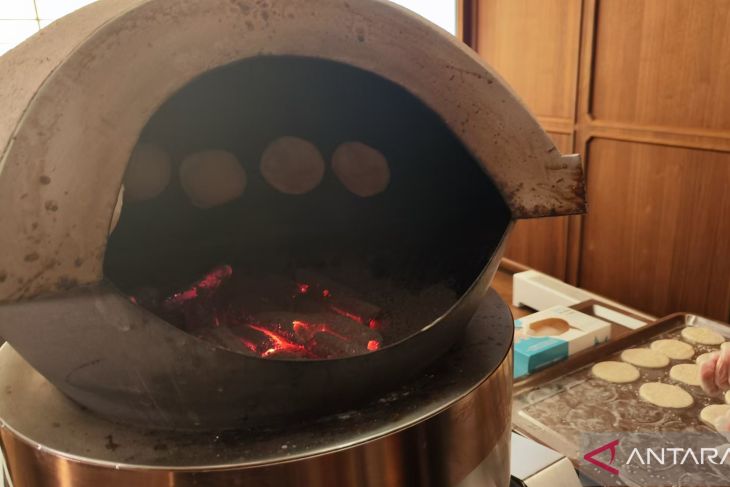
5. Caviar from the Loess Plateau (黄土高坡上的鱼子酱)
This food is a type of grain (millet) which in Indonesia is used for chicken feed, but in the hands of chefs from Shanxi, the millet is made into a kind of caviar. The “millet” is steamed, frozen and fried, and the gelatin starch is squeezed and crushed so that it becomes soft and slightly chewy in taste and is considered by locals to be “caviar” from the high slopes of the Loess.
This dish is also one of the specialties of Jin traders. It tastes like rice with smaller grains, is crisper and tastier because various spices are added and doesn’t make you feel full easily even though it is a carbohydrate dish.
Also read: Hunt for delicious halal culinary delights in the center of Chengdu City, China
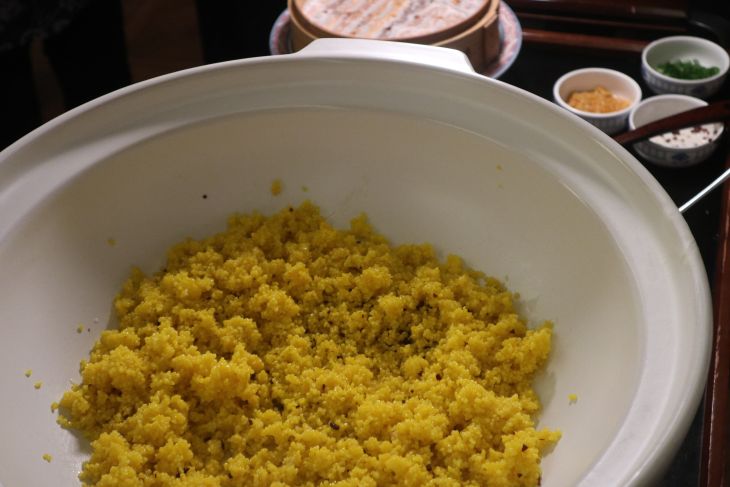
6. Three types of lantern dumplings filled with shrimp and fish, lamb and pork (金奖灯笼百花稍梅(秧草虾仁、苔蘭酱肉、羊肉、三鲜猪肉)
It is called a lantern because the dumpling skin is specially made so that it looks transparent, namely from roasted white wheat and the top of the dumpling is made beautiful like a blooming plum flower.
When you eat it, you feel the skin is thin but tough, while inside you can feel the delicious filling and fresh juice inside with a mixture of pepper, salt, white soy sauce, chopped ginger, sesame oil, spring onions and meat filling.
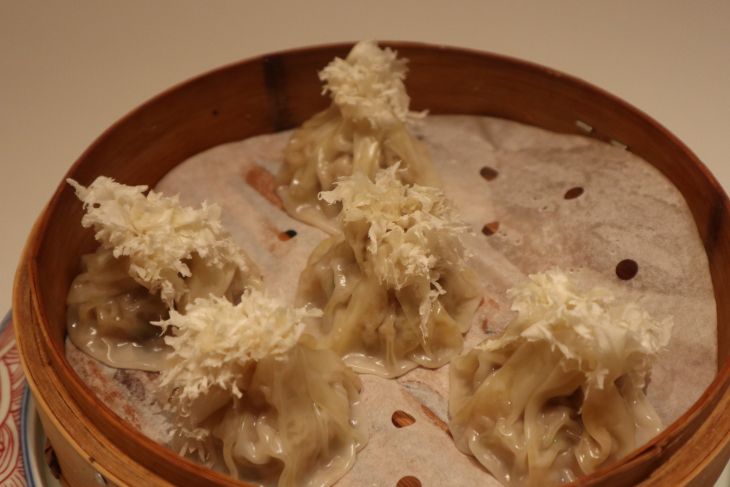
7. Qinglong broadsword performance (青龙偃月刀)
At the Xinghua Hall restaurant there was also a display of the Qinglong broadsword which was almost one meter long and weighed 14 kilograms with a dragon engraving. The chef uses the broad sword to cut the noodle mixture quickly so that the noodles are neat and even.
Also read: Local culinary delights tourism in Tianshui, China
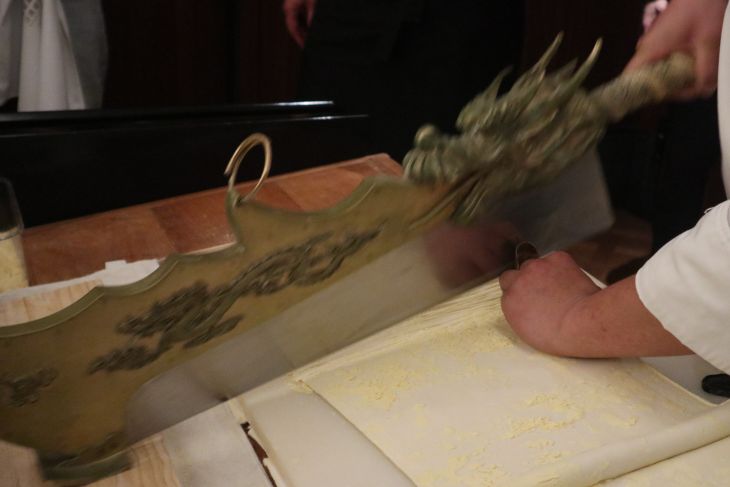
Noodles cut with a large cleaver are called Daoxiaomian (刀削面) – Knife-cut noodles, one of the specialty noodles from Shanxi. These noodles are cut directly from the dough with a sharp knife and cooked in hot water. The noodles are chewy in texture and served with a variety of sauces or soups, often with meat, vegetables and spices.
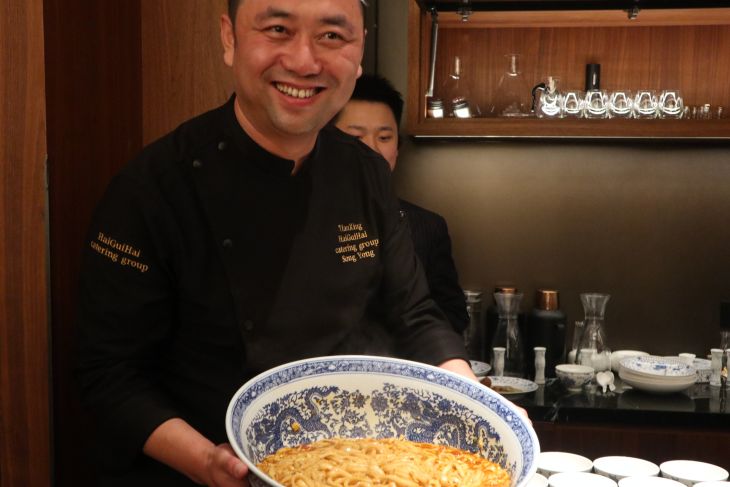
For meal packages with menus varying from appetizers, main dishes to desserts, visitors need to pay 300 RMB (around Rp. 660 thousand) per person.
Also read: Crayfish festival enlivens eastern China’s summer culinary feast
Reporter: Desca Lidya Natalia
Editor: Zita Meirina
Copyright © ANTARA 2024



